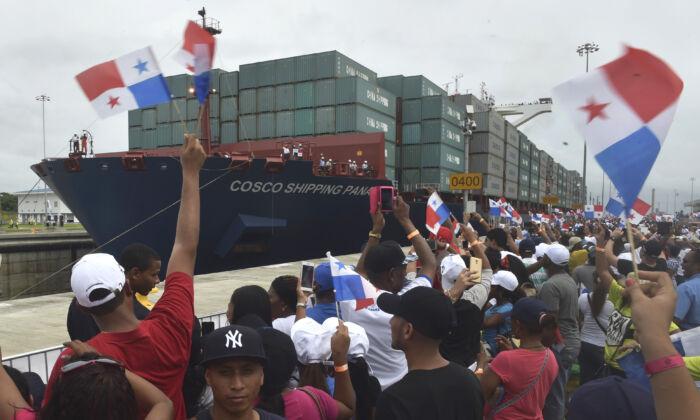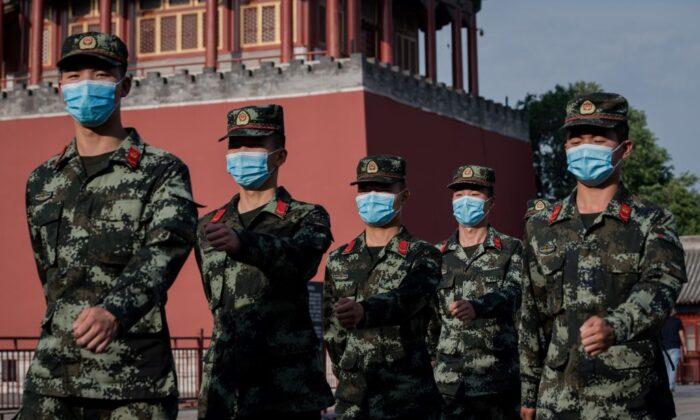News Analysis
As part of its efforts to counter China in the Pacific, the United States turns its attention to the Association of Southeast Asian Nations (ASEAN).
“The United States and ASEAN have shared a vision for this region, and together will guard against threats to international rules and norms,” Vice President Kamala Harris told ASEAN members at a meeting on May 13.
The intergovernmental organization consists of 10 countries, including Brunei, Cambodia, Indonesia, Laos, Malaysia, Singapore, Thailand, the Philippines, Burma (also known as Myanmar), and Vietnam.
ASEAN has been increasingly slipping into the Chinese Communist Party’s (CCP) sphere of influence. The ASEAN members have signed onto the Belt and Road Initiative (BRI, also known as “One Belt, One Road”). At the same time, many are also members of the China-led Regional Comprehensive Economic Partnership (RCEP) and the Comprehensive and Progressive Agreement for Trans-Pacific Partnership (CPTPP). Over the past decade, China has become the block’s largest trading partner, accounting for 24.7 percent of ASEAN’s foreign trade in 2020.
The outcome of the U.S.-ASEAN summit that ended on May 13 was a pledge to establish an ASEAN-U.S. Comprehensive Strategic Partnership in November of this year. Recognizing that ASEAN is heavily involved with China economically, the White House did not force the organization to choose between the United States and China. President Joe Biden said that the United States would augment its relationship with ASEAN economically and joint maritime security issues. He also said that the partnership would intensify U.S. engagement with the 10-country bloc to ensure freedom of navigation in the South China Sea, which is a veiled reference to China.
Although ASEAN nations are interested in receiving trade and investment from China, they are still concerned about China’s military presence in the region. Beijing’s claim to the South China Sea infringes on the sovereignty of several Southeast Asian nations. Currently, the CCP has territorial disputes with several ASEAN members, such as Brunei, Indonesia, Malaysia, the Philippines, and Vietnam, as well as non-ASEAN members Taiwan and Japan.
The United States named Yohannes Abraham to fill the position of envoy to ASEAN, which has been vacant since 2017. The recent summit, along with the Biden administration’s Indo-Pacific Economic Framework (IPEF), demonstrates that the United States recognizes the strategic importance of this bloc of nations.
The United States is attempting to prevent the CCP from controlling an area of the world, which is responsible for much of global containerized shipping and oil transit. The Strait of Malacca alone sees the passage of 83,000 seafaring vessels per year, accounting for 40 percent of international sea traffic. Additionally, claiming sovereignty over the South China Sea would grant the CCP access to 190 trillion cubic feet of natural gas and an estimated 11 billion barrels of oil reserves.
The People’s Liberation Army Navy claims to have warned a U.S. warship that was crossing the Strait of Taiwan on May 4. The U.S. response was that the mission of the USS Port Royal was a standard transit operation in open waters in accordance with international law. The United States takes such missions regularly, generally once a month. This incident, which is one of many, demonstrates the CCP’s attempts to limit freedom of navigation.
A CCP statement said, “Theatre troops maintain high alert at all times, resolutely counteract all threats and provocations, and resolutely defend national sovereignty and territorial integrity.”
The CCP’s position supports China’s increasing militarization of the region in the disputed zones. If Beijing lays claim to an area, then Beijing considers its sovereign territory and justifies its right to defend it. The CCP makes these claims and assertions despite the rulings of international courts, which say that the ASEAN members’ claims are legitimate.
Ahead of the ASEAN summit, the CCP called the Indo-Pacific Economic Framework (IPEF) an attempt to get ASEAN to decouple from China. Beijing’s reaction to the actual summit was one of condemnation and accusations. Chinese state-run media Xinhua reported on May 13 that the United States was trying to drum up support among ASEAN nations for its Indo-Pacific strategy, which it claims is similar to the U.S. campaign against Russia for the Ukraine invasion. Conversely, the United States has not condemned meetings between China and ASEAN.
As the United States is the only regional military strong enough to stand up to China, the protection of ASEAN’s sovereignty falls to the United States.
Views expressed in this article are opinions of the author and do not necessarily reflect the views of The Epoch Times.





